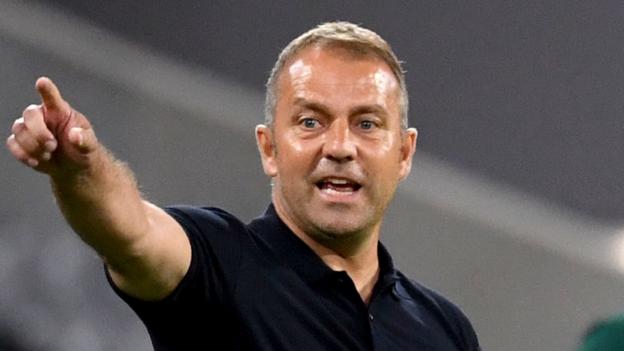Bundesliga champion Flick will face Barcelona in the quarter-finals on Friday, to take a big step towards his first Champions League triumph since 2013.
He left the assistant coach last November, replacing Niko Kovac after a 5–1 defeat at Eintracht Frankfurt, Bayern’s toughest Bundesliga defeat in 10 years. At the time, Bayern were fourth on the table. The next month, they fell to the seventh. But Flick led a recovery that handed over doubles in the league and cup and now has his eyes on the biggest prize of all.
Being the head coach of Bayern Munich is the task of German football, given the vast resources, a reliable board of administrators and an infrastructure.
But Bayern have made some failed decisions by hiring head coaches over the past decade. First, a guy with an almost unrivalled foreign reputation with Carlo Ancelotti left after just over a season. Kovac then ejected after 16 months.
When the club sought Kovac’s replacement, the Bayern board may simply not find a “big solution”, so they opted for Flick. Considered a mere replacement at first, the 55-year-old surprised many by achieving his task permanently.
At first glance, Flick’s low-key public persona and unimpressive CV might have made him appear a charming outsider who could never do more than fulfil caretaker duties. However, looking at Flick closely, you see someone with fierce ambition, a savvy networker and power seeker. “He is down to earth, but certainly not a naive Mr Nice Guy,” says a source that worked with Flick at the German football association.
Flick is driven by his competitive nature and hates losing more than anything else.
Flick’s quest for greatness could have ended very early. Between 2000-2005, he managed TSG Hoffenheim in Germany’s third division. After failing to get promoted with the team, he was fired.
At that point, Flick, with little head coach experience, could have disappeared into amateur football obscurity.
But, instead, he benefited from his network in southern German football and, after a brief stint at Red Bull Salzburg under Giovanni Trapattoni, took a job as Germany’s national team assistant to Joachim Low in 2006.
Flick willingly stepped into the shadow of Low and stayed there until 2014 – winning the World Cup at the end of his spell – before being promoted to sporting director of the German FA and later working briefly as chief executive at Hoffenheim.
A reason for his decision to sign with Bayern last summer and become an assistant coach to Kovac was possibly that he didn’t want to be a boardroom official. It’s very likely that Flick’s instinct told him Kovac’s days at Bayern were already numbered.
Flick had been involved at the highest levels in German football for more than a decade, yet even informed Bundesliga fans didn’t know much about him when he was announced as interim coach.
He has been smart about not overexposing himself. He takes actions strategically, when he believes they have the most impact. The most striking example of that came after a match last autumn when he offered Javi Martinez, who was going through a difficult spell, a hug and a sympathetic ear – for all camera lenses to capture.
Being the one that could watch from the shadows for years, he knew that he could have walked away, portraying the merciless coach that dismisses feelings and demands performance. He didn’t.
Flick worked with Low for eight years and learned how to manage a high-level group of players by talking to their hearts, manipulating their minds, and improving the team spirit.
He has seemingly adopted these techniques at Bayern. Despite receiving the chance of a lifetime, Flick has not been an aloof leader. He realised that Bayern’s squad was falling apart in the light of that crushing defeat against Eintracht Frankfurt.
After taking over, he assembled key members of the team and wanted to know what they thought about the failures of the previous weeks and months.
They were all unhappy with the low-intensity tactics Kovac had implemented. Flick reacted immediately, ordering his team to go back to a high press and high defensive line.
He and his players wanted to recapture the magic of the successful 2012-13 Champions League campaign, when Bayern overpowered their opposition, squeezing the life out of them with relentless counter pressing.
Flick is often compared to Jupp Heynckes, Bayern’s head coach in 2013; both are empathetic in the dressing room; neither chase the spotlight unnecessarily.
What separates the two is that Heynckes had plenty of success as a manager before arriving at Bayern – winning the Champions League with Real Madrid in 1998.
Flick can put the 2014 World Cup on his business card, but he wasn’t the man in charge. He has to prove that he can sustain the pressure of these next few days and complete his story as the man that came out of the shadow to surprise the football world.

